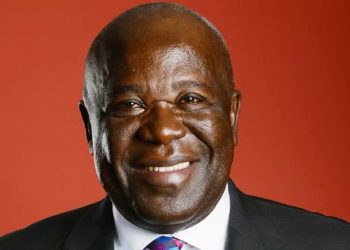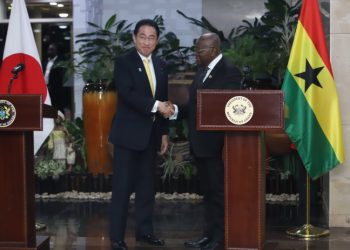
Introduction
Ghana, often heralded as a beacon of democracy and political stability in West Africa, faces a mounting governance challenge: the erosion of meritocracy in the appointment of public office holders. Over the past two decades, qualified professionals are frequently overlooked in favour of political loyalists and connections. This trend has profound negative consequences for governance quality, economic development, and social equity, undermining Ghana’s growth prospects and citizens’ trust in public institutions.
This article makes the case for urgently reinstating meritocracy as the guiding principle in appointing public officials, a reform crucial for Ghana’s national development. Using empirical evidence, historical context, international comparisons, and an honest assessment of challenges, this analysis advocates for policies and cultural shifts that prioritise competence and professional excellence over political expediency.
Historical Context and Current Landscape
Meritocracy, the principle of selecting individuals based on ability and achievement, has long been an ideal in governance globally. In Ghana’s earlier decades of independence, public appointments often reflected professional qualifications, with technocrats playing key roles in policy leadership. However, as democratic competition intensified, political considerations began to overshadow merit, especially after the 1990s.
Currently, it is commonplace for more than half of the Ministers of State to be Members of Parliament, appointed largely based on party loyalty rather than expertise. While parliamentary appointments are constitutionally permitted, the heavy reliance on this model contributes to a narrowing of the talent pool and risks politicising critical policy areas. In a 2023 survey by the Ghana Institute of Governance, 62% of respondents expressed dissatisfaction with the competence of current public office holders.
Consequences of the Decline in Meritocracy
Erosion of Public Trust and Aspirations
One critical consequence of sidelining merit is the erosion of public confidence in governance systems. Young Ghanaians, facing staggering unemployment and limited opportunities, observe that hard work, academic excellence, and professional development often do not translate into national leadership roles. This perception disheartens youth, dampening their motivation and potentially fostering apathy or resorting to patronage networks themselves.
A striking example comes from the Ghanaian youth unemployment rate, hovering around 13% officially, but believed substantially higher when underemployment is factored in. This demographic watches as politically connected individuals ascend public office despite lacking requisite skills. Such scenarios send a damaging message that meritocracy is irrelevant, discouraging investment in education and skill acquisition.
Inefficiency and Poor Governance
Competent leadership is foundational for effective governance. Appointing officials who lack skills appropriate for their portfolios results in poor decision-making, misallocation of resources, and delayed implementation of crucial reforms. The World Bank’s 2021 report on Ghana’s public sector efficiency highlights that inefficiencies in ministries have cost the country approximately 3.5% of GDP annually. Such setbacks stall progress in poverty reduction, healthcare, and infrastructure development.
For instance, Ministries of Health and Education, cornerstones of development, have sometimes been led by appointees without relevant technical expertise, undermining policy coherence and execution. This inefficiency directly impacts the quality of service delivery, with consequences for the most vulnerable populations.
Stagnation of Economic Development and Innovation
Countries that institutionalise meritocracy tend to attract high-calibre talent and inspire innovation. For developing economies, this translates into accelerated economic growth and global competitiveness. Ghana risks stagnation and brain drain if qualified professionals perceive public service as politicised and unrewarding.
Data from the Ghana Investment Promotion Centre shows a 15% decrease in foreign direct investment between 2017 and 2022, linked in part to concerns about governance and institutional capacity. Meanwhile, surveys of diaspora professionals reveal reluctance to return to Ghana due to scepticism about meritocracy and transparency in opportunities.
Perpetuation of Inequality and Exclusion
The prevalent appointment system often favours those with access to political elite networks, perpetuating social inequalities. This entrenches barriers for marginalised groups and talented individuals from less privileged backgrounds. Meritocracy, by contrast, offers a pathway for equitable representation and social mobility based on ability.
Decreased Global Competitiveness and Investor Confidence
Global investors monitor governance quality closely. The perception of nepotism and political patronage in Ghana’s public appointments negatively affects foreign direct investment inflows, which saw a 15% dip between 2017 and 2022, according to the Ghana Investment Promotion Centre. A meritocratic system signals stability, transparency, and professionalism to international partners, a crucial factor in global economic integration.
Countries with strong merit-based public services consistently outperform others on global competitiveness indices, attracting multinational companies and partnerships critical for industrialisation and job creation.
Potential Counterarguments and Responses
Some proponents of the current system argue that political loyalty ensures cohesion and policy alignment within governments. While political unity is important, it must not come at the expense of expertise and good governance. Enabling competent technocrats to serve alongside elected politicians promotes balance, allows for evidence-based policy-making, and strengthens institutional capacity.
Others fear that meritocratic criteria may exclude traditional leaders or community representatives who, though not formally qualified, offer local leadership legitimacy. Meritocracy does not equate to exclusion of societal values; rather, it optimises the balance between technical competence and representative inclusion. Selection frameworks can incorporate both merit and leadership legitimacy criteria where appropriate.
Areas for Reform and Recommendations
Establish Transparent, Competence-Based Criteria for Public Appointments
Ghana must institutionalise transparent and clear criteria for appointments, focusing on professional qualifications, relevant experience, and proven leadership abilities. Independent, non-partisan screening panels comprising experts, civil society, and academia should vet candidates to minimise political interference.
Reduce Overreliance on Parliamentary Appointments
Appointing more than 50% of Ministers from Parliament risks politicising the executive branch. International best practices, as demonstrated by countries like Singapore and Germany, favour appointing ministers and key officials from a wider talent pool outside the legislature. By doing so, Ghana can tap into technocrats, academics, and private sector experts with specialised skills.
Strengthen Accountability Mechanisms
Meritocracy thrives in an environment with rigorous performance review systems. Public office holders must be evaluated regularly on policy outcomes, with transparent reporting to parliament and citizens. Mechanisms should enable removal or reassignment of underperforming officials.
Promote Youth Development and Participation
To cultivate a meritocratic culture, Ghana must invest in youth leadership training, mentorship programmes, and access to internships within government. Empowering the next generation creates a pool of competent, motivated future leaders and signals that excellence and hard work are rewarded.
Leverage Technology to Enhance Transparency
Digital platforms can be developed to publicise the qualifications of nominees, track appointment processes, and facilitate public feedback. These systems foster openness and help deter nepotism by enhancing citizen oversight.
Engage the Public through Awareness and Dialogue
Broad-based campaigns using community forums, radio, television, and social media are vital to educate citizens on meritocracy’s benefits. Public engagement builds pressure on political actors and nurtures a culture valuing competence over favouritism.
Broader Implications: Merits Beyond Public Appointment
Meritocracy benefits all sectors of society. In education, recruiting teachers and administrators based on merit improves learning outcomes. In healthcare, skilled professionals lead to better patient care. An impartial judiciary rests on meritocratic appointments, ensuring justice and rule of law. Across economic sectors, meritocracy strengthens institutions and fosters trust.
Learning from International Experiences
Singapore offers a compelling model through its Public Service Commission, which rigorously selects civil servants and ministers based on merit. This system underpins Singapore’s rapid economic growth and global stature.
South Korea adopted meritocratic governance post-1960s alongside massive investments in education, transforming itself into a developed economy. These countries demonstrate the feasibility and benefits of merit-based appointments even amid complex socio-political contexts.
Ghana can adapt elements such as independent selection commissions, transparent criteria, and strong accountability frameworks to local realities.
Challenges to Implementation and Mitigation Strategies
Reforming Ghana’s appointment system faces significant challenges. Political elites vested in patronage may resist change, fearing loss of influence. Institutional inertia and lack of political will complicate reforms.
Mitigating these challenges requires:
Political Commitment: Advocacy to secure leadership promises and legislative backing for merit reforms.
Civil Society and Media Vigilance: Continuous monitoring and publicising meritocracy-related issues to maintain pressure.
Broad Coalitions: Inclusion of youth groups, professional bodies, and diaspora support to diversify backing.
Incremental Reforms: Starting with pilot programmes and gradual expansion can build momentum and confidence.
The Role of Education in Fostering Meritocracy
Education is the foundation of meritocratic societies. Ghana must ensure quality, accessible education that prepares citizens with relevant skills and knowledge. Investing in scholarships and targeted support for underrepresented groups addresses structural inequalities.
Universities and vocational institutes should emphasise leadership, ethics, and public policy, equipping graduates for public service competitiveness.
Engaging the Diaspora and International Partners
Ghana’s diaspora can serve as agents of change, sharing expertise and advocating for meritocracy abroad and at home. Likewise, partnerships with international organisations experienced in governance reform can provide technical assistance, training, and funding.
Monitoring and Evaluation of Reform Progress
To ensure success, Ghana should establish independent bodies tasked with monitoring reform implementation, evaluating public officeholders’ performance, and recommending improvements. Regular public reports increase transparency and maintain reform momentum.
Conclusion
Ghana stands at a crossroads. The choice between perpetuating a politicised appointment system or embracing meritocracy has profound implications for the country’s democratic integrity, development trajectory, and social cohesion.
The evidence is unequivocal. Countries that institutionalise meritocracy foster good governance, economic vitality, and social equity. Ghana’s future depends on adopting transparent, competence-based appointment systems that restore trust and elevate national prospects.
This is an urgent call to action for all stakeholders, government leaders, civil society, youth, and citizens to champion meritocracy as a core national principle. Doing so will chart a sustainable path towards prosperity, dignity, and inclusive growth for all Ghanaians.
About the Author:
Dominic Senayah, an International Relations Researcher who dives deep into the realms of Trade, Migration, and Diplomacy. With a rich background in Business Development and Marketing Communications, I bring a unique perspective to my analysis of global issues. My goal is to enrich academic discussions and enhance public understanding of the intricate dynamics that shape international relations.
DISCLAIMER: The Views, Comments, Opinions, Contributions and Statements made by Readers and Contributors on this platform do not necessarily represent the views or policy of Multimedia Group Limited.
DISCLAIMER: The Views, Comments, Opinions, Contributions and Statements made by Readers and Contributors on this platform do not necessarily represent the views or policy of Multimedia Group Limited.
- President Commissions 36.5 Million Dollars Hospital In The Tain District
- You Will Not Go Free For Killing An Hard Working MP – Akufo-Addo To MP’s Killer
- I Will Lead You To Victory – Ato Forson Assures NDC Supporters
Visit Our Social Media for More




